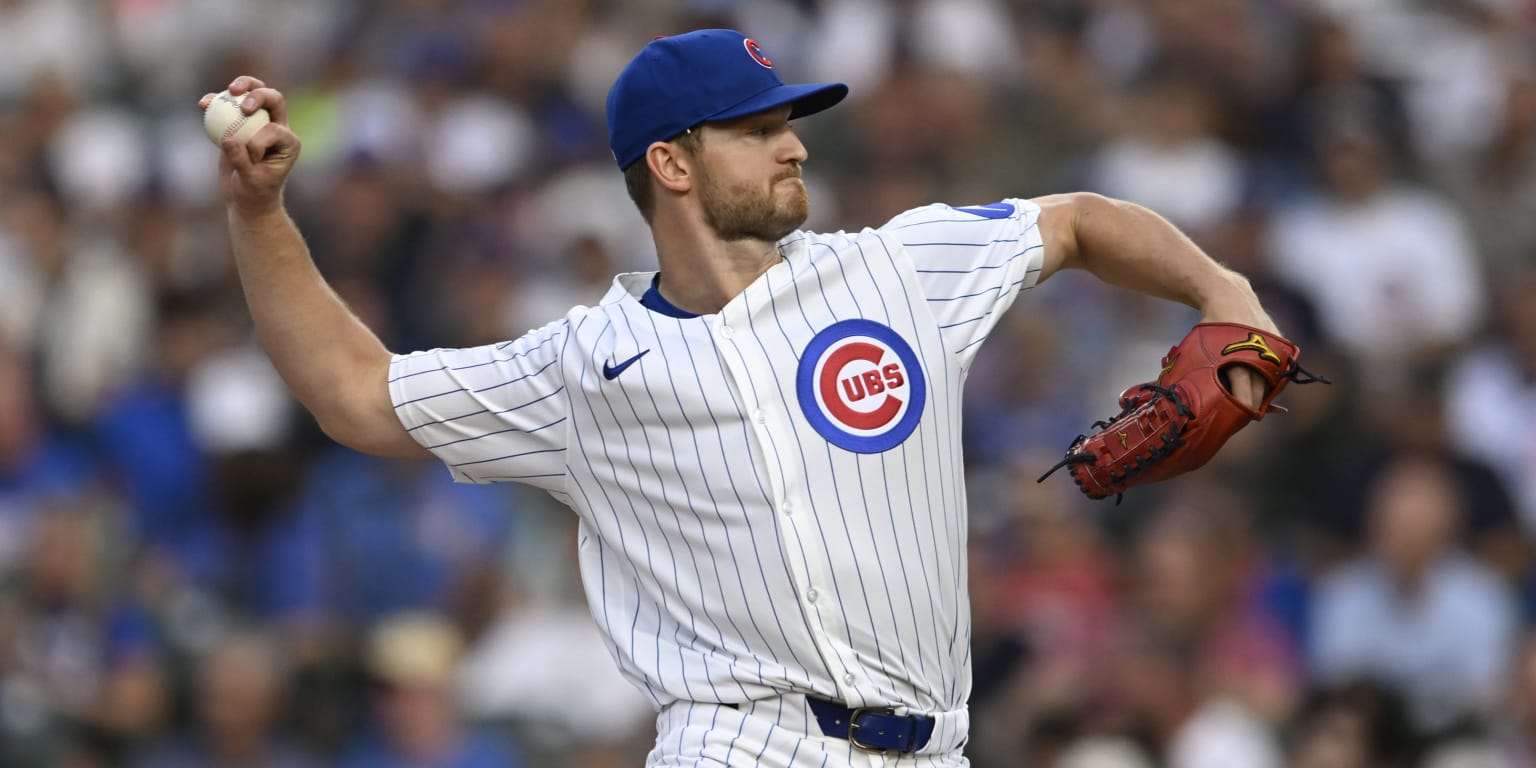What Happened
Michael Soroka, a pitcher recently acquired by the Chicago Cubs from the Washington Nationals, exited his debut start with the team due to discomfort in his right shoulder. The incident occurred during a game against the Cincinnati Reds on August 4, 2025, shortly after Soroka had completed the second inning. Initially, he had a promising start, striking out three batters and allowing only one run. However, after feeling a concerning sensation in his shoulder while throwing a fastball, he informed the coaching staff of his discomfort and was subsequently removed from the game.
Cubs manager Craig Counsell confirmed postgame that Soroka would be placed on the injured list (IL) for further evaluation. The team is currently awaiting more information regarding the severity of the injury, which has raised concerns given Soroka’s history with injuries throughout his career.
Key Details
-
Injury Timeline: Soroka’s discomfort began in the second inning when he felt a “grab” in his shoulder while pitching. He finished the inning but reported the issue to the coaching staff afterward. His final pitch registered a significant drop in velocity, clocking in at 89.3 mph, down from his earlier throws.
-
Performance Metrics: In his brief outing, Soroka struck out three batters and allowed one run, which came from a home run by Reds catcher Tyler Stephenson. His average fastball velocity had already been declining, dropping from 94.4 mph in June to 90.8 mph in his latest outing.
-
Injury History: Soroka has a notable history of injuries, including a biceps strain earlier this season and two Achilles tears that sidelined him for the entirety of the 2021 and 2022 seasons. His recent MRI prior to the trade had shown no significant issues, making this latest setback particularly concerning.
-
Trade Context: The Cubs acquired Soroka at the trade deadline, sending two prospects to the Nationals in hopes of bolstering their pitching rotation as they pursue a playoff spot. The Cubs are currently in a competitive position in the National League Central, trailing the Milwaukee Brewers.
Multiple Perspectives
The immediate reaction from Cubs management and fans has been one of concern for Soroka’s health. Manager Craig Counsell expressed sympathy for Soroka, emphasizing the hope that the injury is minor and that he could return in a few weeks. This sentiment reflects a broader concern within the organization about maintaining a healthy pitching staff, especially as they aim for postseason contention.
On the other hand, analysts have pointed out that shoulder injuries are notoriously unpredictable and can often lead to longer recovery times. The Cubs’ decision to place Soroka on the IL immediately after the game indicates a cautious approach, prioritizing the player’s long-term health over short-term gains.
Additionally, some commentators have noted the potential impact on the Cubs’ playoff aspirations. With Soroka’s addition intended to provide depth and stability to the rotation, his absence could complicate the team’s strategy as they navigate the final stretch of the season.
Context & Background
Michael Soroka was once considered a rising star in Major League Baseball, particularly during his time with the Atlanta Braves. However, his career has been marred by injuries, which have limited his ability to consistently perform at a high level. The Cubs’ acquisition of Soroka was seen as a strategic move to enhance their pitching depth, especially given their competitive standing in the league.
The Cubs are currently in a tight race for the National League Central title, and the loss of a key pitcher like Soroka could have significant implications for their postseason chances. The team has been dealing with other pitching injuries, making Soroka’s potential absence even more critical.
What We Don’t Know Yet
As of now, the severity of Soroka’s shoulder injury remains unclear. The Cubs have indicated that he will undergo further testing to determine the extent of the damage. Until those results are available, it is difficult to assess how long he might be sidelined or what the implications will be for his future with the team.
Additionally, there are questions regarding the Cubs’ rotation strategy moving forward. With Soroka’s injury, the team may need to rely more heavily on other pitchers, some of whom are also dealing with their own challenges. The overall impact on the Cubs’ playoff push will depend on both the duration of Soroka’s absence and the performance of the remaining pitching staff.
In summary, while Soroka’s debut was initially promising, the subsequent injury raises significant concerns for both the player and the Cubs as they aim for a successful season. The coming days will be crucial in determining the next steps for Soroka and the team’s overall strategy.


